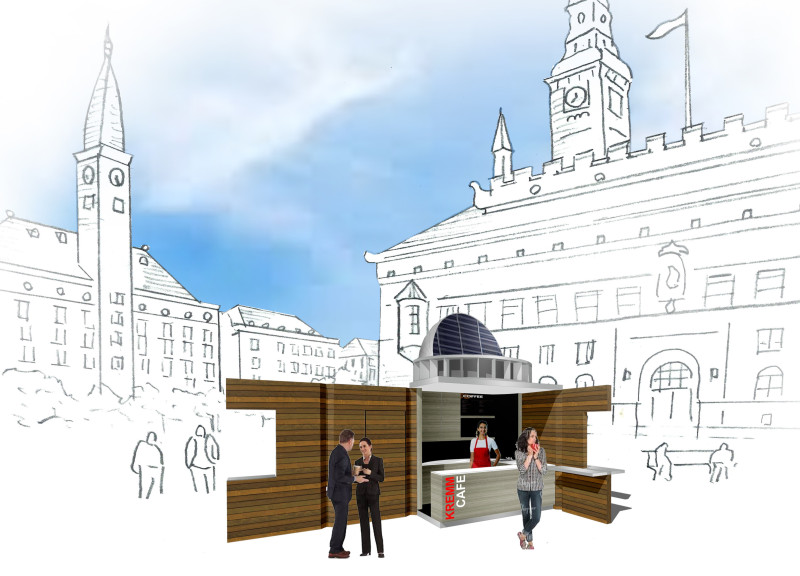5 key facts about this project
## Overview
Located within an urban setting, the design of the coffee cherry kiosk draws inspiration from the natural form of a coffee cherry, aiming to create a functional space for serving coffee while promoting sustainability. The project integrates natural concepts through adaptive functionalities, allowing it to respond effectively to varying environmental conditions. This innovative kiosk prioritizes a harmonious relationship between architecture and nature.
## Structural Configuration
The design features a structural form akin to a drum with an upper dome, reflecting the coffee cherry's shape. An outer protective layer combines textured wood finishes and flexible elements, enabling the kiosk to blend into diverse urban contexts. A notable feature is the smart solar silo located at the top, which functions as both a sun-tracking solar energy collector and a protective cover for accessory storage. This element enhances the sustainability of the kiosk while adding a distinctive architectural focal point.
## User-Oriented Design Features
Internally, the kiosk is organized for optimal functionality. The "heart" component includes essential facilities such as coffee brewing equipment, a clean water tank, and a gray water storage area. The layout is designed to facilitate interaction between staff and customers, with a service counter positioned for easy access and efficiently placed storage to streamline operations. Additionally, features such as rotatable solar panels and expandable wings demonstrate adaptability, allowing the kiosk to maximize energy capture and transform its operational capacity based on weather conditions.
The materials selected for construction emphasize sustainability, including sustainably sourced wood plank siding, recyclable aluminum, stainless steel for hygiene, and durable manufactured stone. Such choices not only contribute to the environmental intention of the project but also enhance its functional and aesthetic qualities.






















































